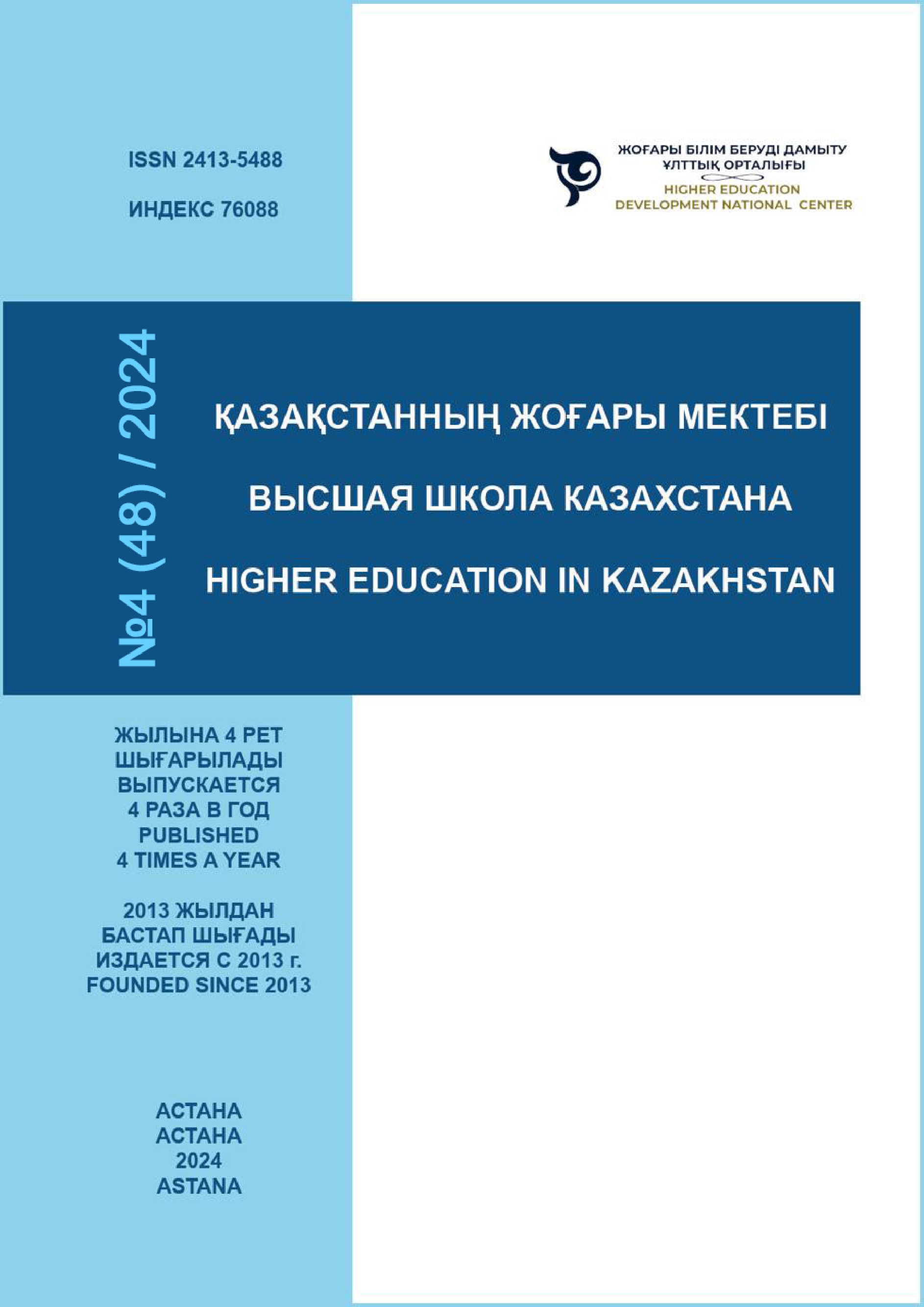WORK-INTEGRATED LEARNING FRAMEWORK AT UNIVERSITY
DOI:
https://doi.org/10.59787/2413-5488-2024-48-4-26-33Ключевые слова:
framework, work-integrated learning, industry mentor, academic mentor, student, university, labor market, employmentАннотация
Work-integrated learning helps to coordinate the theoretical training of students with future practical activities in the workplace, gives an opportunity to business, university and the state to participate in joint activities for innovative development in all sectors of the economy and achieve their organizational and national goals. Work-integrated learning is practiced in most countries, but it is not a common feature of all universities. Stakeholders, university, industry organizations and students, there is a gap in empirical research in terms of identifying the interactions and roles of stakeholders in work-integrated learning framework. The purpose of the study was to create a framework of work-integrated learning at a university, with the inclusion of three stakeholders involved in this process: an industry and an academic mentor, and a student. In this framework, the stages of work-integrated learning were developed, the functions of the participants of work-integrated learning at each stage, teaching methods and learning outcomes were characterized. At the theoretical level, this framework contributes to the amount of knowledge about work-integrated learning in universities. On a practical level, the study has a positive impact on students, the university and industry organisations that become partners in work-integrated learning. The created framework will contribute to the improvement of educational results, better preparation and compliance of graduates with the requirements of the labor market
Библиографические ссылки
Ariffin, T., & Asmah A. (2009). Innovative practices in TVET toward education for sustainable development: Work-based learning diploma programmes at community college in Malaysia. In International experts meeting on reorienting TVET policy towards education for sustainable development, Berlin, Germany.
Barabanova, M. I., Trofimov, V. V., Trofimova E. V. (2018). Tsifrovaya ekonomika i «Universitet 4.0». Zhurnal pravovyh i ekonomicheskih issledovanij, (1), 178-184.
Edmunds, J. (2007). Personal View of Work based Learning: Policy and Practice from both ends of telescope. In Work-based Learning Futures Conference (pp. 125-139).
Etzkowitz, H., & Zhou, C. (2017). The triple helix: University–industry–government innovation and entrepreneurship. Routledge.
Jackson D. (2015). Employability skill development in work-integrated learning: Barriers and best practice. Studies in higher education, 40 (2), 350-367.
Jones, D. (2016). Learning in and by the community: A work-integrated learning approach to teaching journalism. Asia Pacific Media Educator, 26 (2), 202-213.
Karim, A., Campbell, M., & Hasan, M. (2019). A new method of integrating project-based and work-integrated learning in postgraduate engineering study. The Curriculum Journal, 1-17.
Khasanah, U. (2020). Link and match program with business and industry (DU/DI) as an effort for placement of graduates at SMK Muhammadiyah Delanggu. Journal of Islam and Science, 7 (2), 79-87.
Kim, M. S., Cardinal, B. J., & Yun J. (2015). Enhancing student motivation in college and university physical activity courses using instructional alignment practices. Journal of Physical Education, Recreation & Dance, 86 (9), 33-38.
Leong, R., & Kavanagh, M. A. (2013). Work integrated learning (WIL) framework to develop graduate skills and attributes in an Australian university's accounting program. Asia-Pacific Journal of Cooperative Education, 14 (1), 1-14.
Lynne, B. H. (2003). Arizona Work-Based Learning Resource Guide. A Guide for Connecting Career and Technical Education to the Workplace. Arizona Department of Education.
Muslih, M. (2014). Analysis of the effectiveness of internship programs to synchronize university links and matches with the industrial world: study of internship programs at the faculty of economics, management study program, Muhammadiyah University, North Sumatra. Scientific Journal of Management and Business, 14 (01).
Nicholas, L. (2017). Work integrated learning (WIL) practitioners' perceptions of the value of communities of practice (Master’s thesis, Massey University, New Zealand). Massey University.
Smith, D. A. (2002). Forecasting future skill needs in Canada. In Forecasting Labour Markets in OECD Countries: Measuring and Tackling Mismatches (pp. 66-79). Cornwall: MPG Books.
Taubaeva, Sh. (2015). Metodologiya i metodika didakticheskogo issledovaniya. Almaty: Қazaq universiteti.














